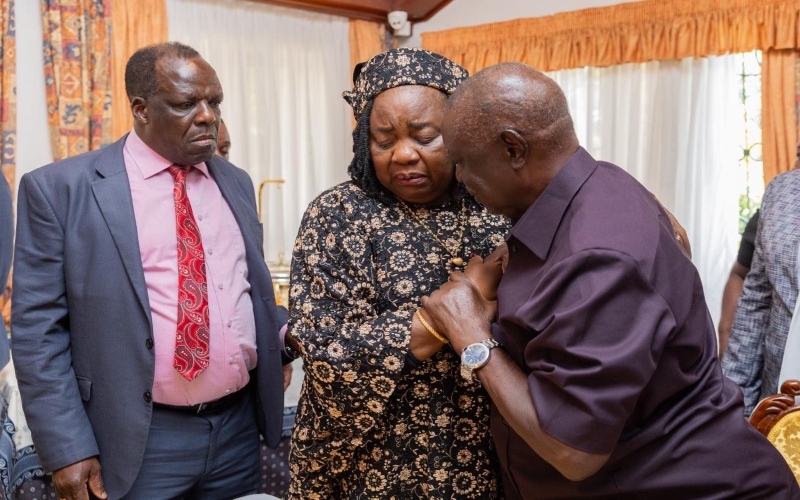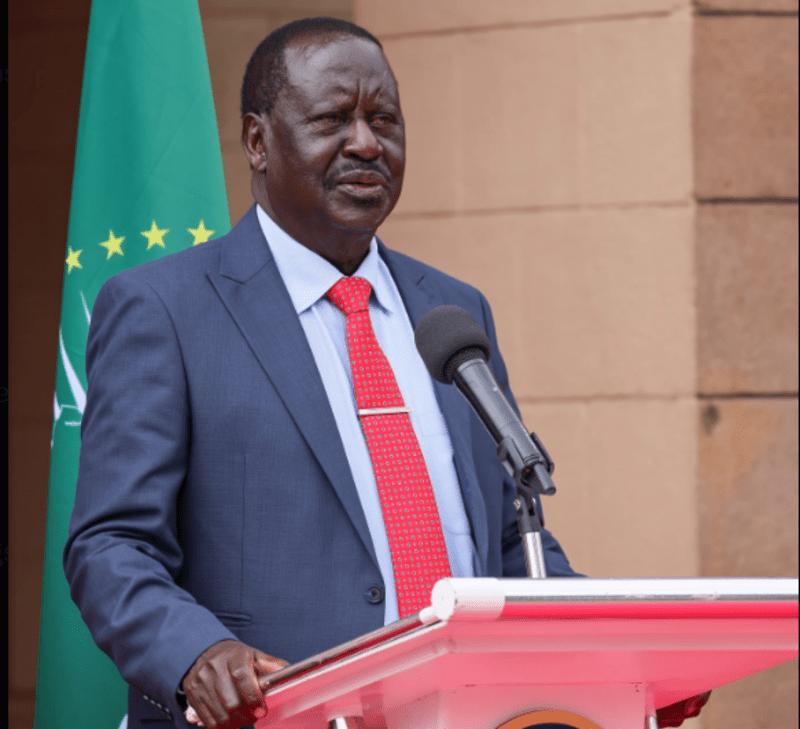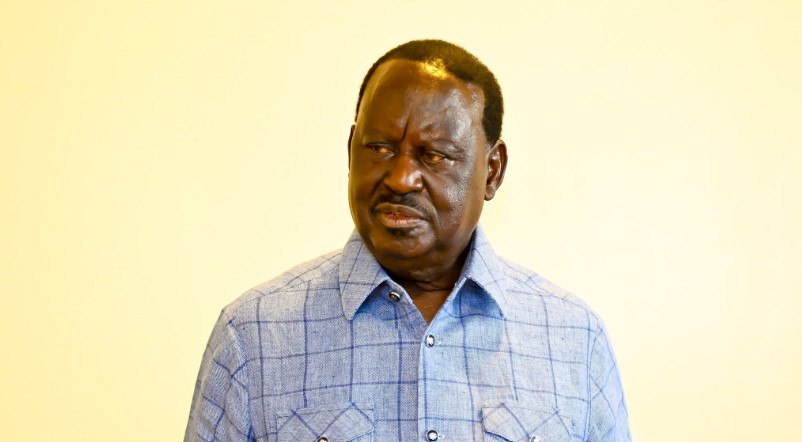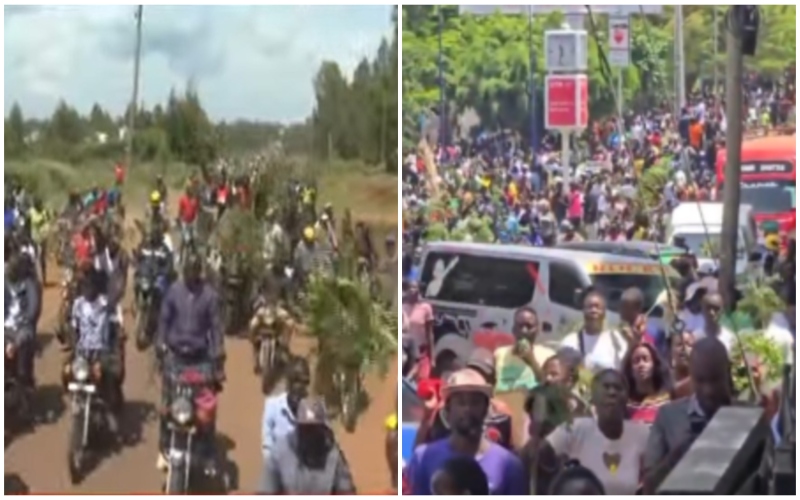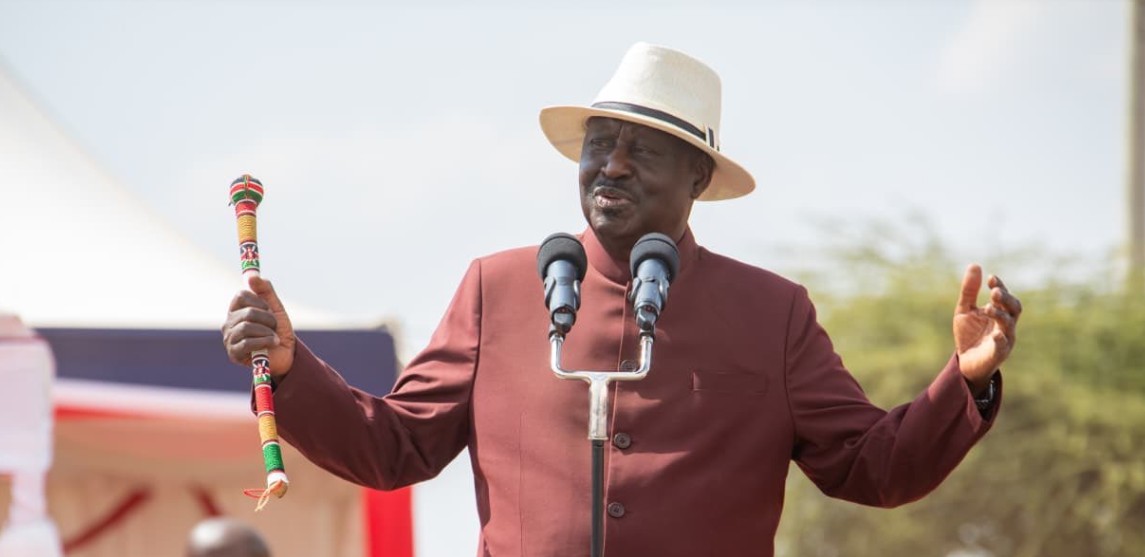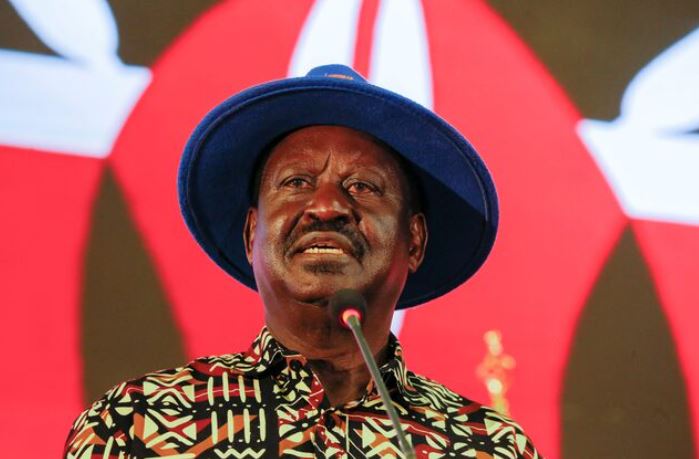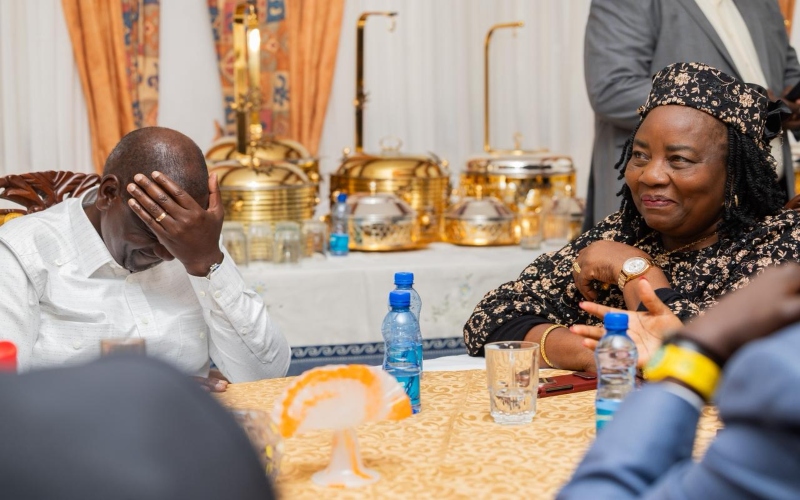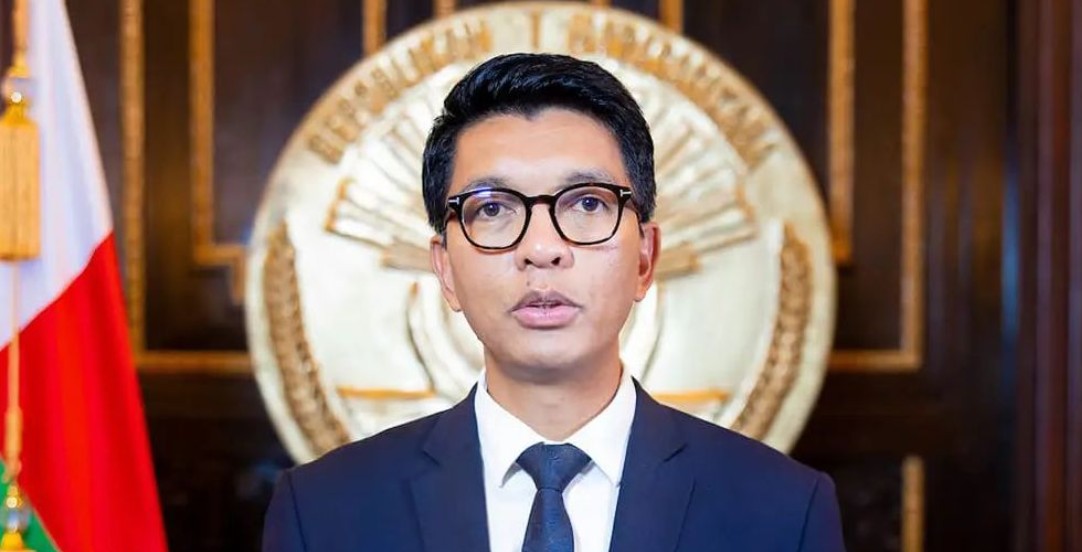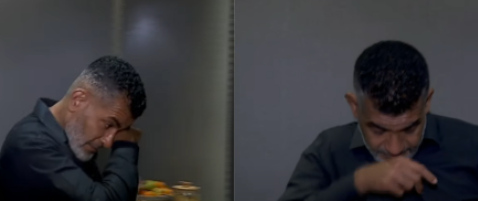End of an era: Raila Odinga, Kenya’s master of political handshakes
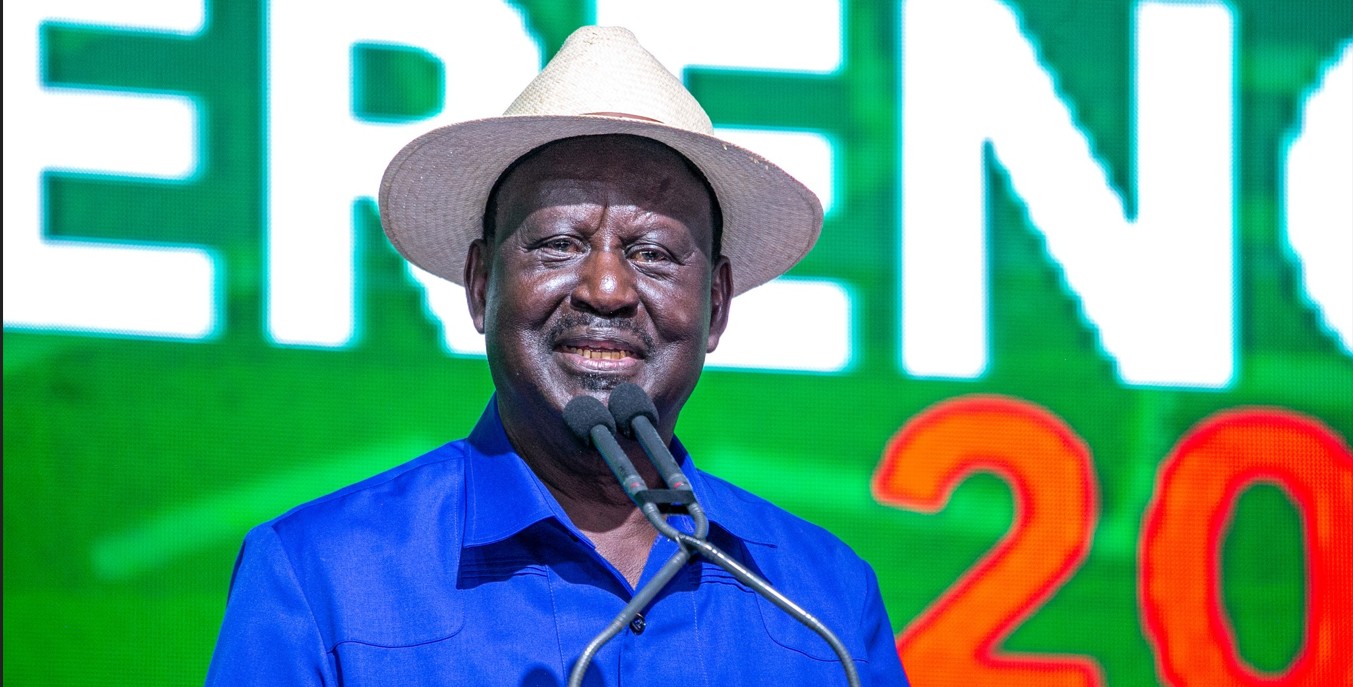
In Kenya's politics, Raila has been known as the master of handshakes, having signed working cooperation with different Presidents, including William Ruto, Uhuru Kenyatta, Mwai Kibaki and Daniel Moi.
Former Prime Minister Raila Odinga, 80, died on Wednesday at an Ayurvedic eye hospital-cum-research centre at Koothattukulam in Ernakulam district of Kerala, India. He suffered a cardiac failure during his morning walk on the campus.
Raila was a veteran politician whose several attempts to become the country's president flopped. However, his ability to work with his rivals each time compounded friends and rivals alike.
More To Read
- 'I am very sorry': Ida Odinga unable to address surging crowd outside Karen home
- AU, IGAD lead Africa in mourning former Prime Minister Raila Odinga
- Key moments in the life and political journey of Raila Odinga
- Indian PM Narendra Modi, Ethiopia's Abiy Ahmed lead Raila Odinga's tribute
- Thousands gather in Kisumu, Karen to mourn former Prime Minister Raila Odinga
- Governor Abdulswamad Nassir breaks down as he recalls final moments with Raila
In Kenya's politics, Raila was known as the master of handshakes, having signed working cooperation with different Presidents, including William Ruto, Uhuru Kenyatta, Mwai Kibaki and Daniel Moi.
The last signed cooperation was between him and President William Ruto to work together under the broad-based government arrangement.
The Eastleigh Voice explored political agreements Raila has made with working presidents and also spoke to analysts who describe the opposition politician's antics as survival moves that have made him stay longer in the game.
Ruto's "handshake" with Raila comes after the March 2018 pact between the ODM leader and former President Uhuru Kenyatta, which ushered in political calmness following the acrimonious 2017 General Election.
It was one of three previous 'handshakes' for Raila since the one brokered by the late former UN Secretary-General Kofi Annan in 2008, and 20 years since another with former president Daniel Arap Moi in 1998.
Raila's first political truce or pact was in 1998 with Moi after the 1997 General Election. Kibaki, who came second, protested the outcome of the poll and took a petition to the Court of Appeal, which he lost on a technicality for not personally serving Moi.
Raila, who came third, surprised friends and foes when he met Moi at his Kabarak home a day after the election and agreed to co-operation between Kanu and NDP. He was also not to contest Kanu's win besides halting all planned demos.
As a result of the cooperation, Raila was appointed to the lucrative Ministry of Energy as minister, and his close allies got government jobs.
The Kanu-NDP deal that Raila brokered later matured into a merger in 2002, and its strengthened bromance was consummated at the Moi International Sports Centre, Kasarani, during the Kanu national party elections, where Raila was elected secretary-general as then vice president, the late Prof George Saitoti, and the late Joseph Kamotho were unceremoniously expended.
It is at Kasarani that Moi and Raila shook hands, the first of the many 'handshakes' for the former Prime Minister.
Despite Raila sacrificing his liberation credentials, his hope of succeeding Moi ended in smoke after Moi chose Uhuru Kenyatta as his preferred successor.
The Kanu cooperation failed him, and he later led a bitter walkout from Kanu alongside most of Moi's former allies, who turned into disgruntled elements, including Saitoti and Kamotho, to form the Liberal Democratic Party (LDP) ahead of the next elections in which he sought a joint opposition candidate to take on Kenyatta.
Raila had initially agreed with former powerful cabinet minister Simeon Nyachae to back his Ford People candidature, but backpedalled and declared 'Kibaki Tosha' at a rally in Uhuru Park, paving the way for a Kibaki presidency.
Other Topics To Read
After the 2007 bitterly contested election that plunged the country into ethnic strife, taking international mediators for the two sides to reach a truce, there was a 'handshake' between Kibaki and Raila at Harambee House, brokered by Kofi Annan.
Come the 2017 contest, Raila boycotted a fresh election ordered by the Supreme Court after his successful challenge to Kenyatta's win and the country yet again faced the prospect of plunging into widespread chaos before he had a handshake with Kenyatta.
Raila's political opponents, however, opposed his cooperation moves, terming them selfish.
In a bold tirade aimed at Ruto, former Deputy President Rigathi Gachagua asserted that the president's political survival heavily hinged on Raila, saying, "The President's current life support is Raila Odinga. If we switch it off, it will be the end."
Gachagua further appealed to the ODM leader to align with his camp, but was adamant that he was capable of flooring the president without the former Prime Minister's help.
Raila's ability to work with rivals repeatedly divided Kenyans on whether he was doing it for his own sake or national interest.
Top Stories Today


